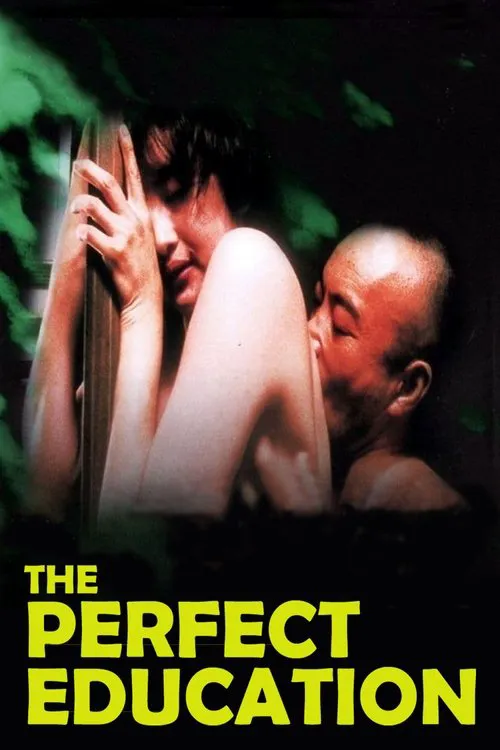The Perfect Education

Plot
The Perfect Education is a 1984 Japanese film directed by Nobuhiko Obayashi, known for its surreal and often disturbing narrative. The movie revolves around a peculiar and unsettling relationship between a schoolgirl named Kuniko and a middle-aged man named Iwazono. The film's plot is shrouded in mystery, making it difficult to discern what is real and what is part of Iwazono's twisted fantasy. The movie begins with Kuniko, a seemingly ordinary schoolgirl, jogging through a serene landscape. It is during this moment of freedom and exercise that she is kidnapped by Iwazono, a man in his late 40s who appears to be a typical, middle-class citizen. Iwazono is portrayed as a character with a deep emotional scar, one that he attributes to a failed marriage. However, the true nature of his relationship with his ex-wife remains unclear, and it is possible that his perception of it is distorted or exaggerated. Iwazono abducts Kuniko, believing that he can teach her the 'perfect education' in matters of love and sex. He sees himself as a kind of mentor or educator, who can impart his knowledge and experience to Kuniko in order to create the ideal union between a man and a woman. The term 'educate' is used in a broader sense, encompassing not just intellectual knowledge, but also a deep, spiritual understanding of the body and the soul. As the story progresses, it becomes clear that Iwazono's intentions are far from altruistic. His fascination with Kuniko is rooted in his own desires and fantasies, rather than any genuine interest in her well-being. The line between reality and fantasy begins to blur, and it becomes difficult to distinguish between the real Iwazono and the Iwazono who exists in his own twisted world. Throughout the film, Kuniko is seen as a kind of object, a vessel for Iwazono's desires and fantasies. She is treated as a possession, someone who can be used and manipulated for his own purposes. Her initial fear and resistance gradually give way to a sense of numbness and acceptance, as she becomes increasingly entranced by Iwazono's warped world. The Perfect Education can be seen as a commentary on the objectification of women, particularly in the context of relationships. Iwazono's views on the perfect marriage and his attempts to educate Kuniko can be seen as a manifestation of his own patriarchal attitude, one that sees women as objects to be possessed and controlled. The film raises important questions about power dynamics, consent, and the boundaries of relationships. Visually, the film is a feast for the senses, with a vivid and often dreamlike quality to its cinematography. Obayashi's direction is characterized by a sense of playfulness and curiosity, as if he is constantly pushing the boundaries of what is acceptable. The use of color, lighting, and composition creates a sense of unease and discomfort, mirroring the viewer's growing sense of unease as the story unfolds. One of the most striking aspects of The Perfect Education is its refusal to provide clear answers or resolutions. The film's ending is deliberately ambiguous, leaving the viewer to ponder the fate of Kuniko and the motivations of Iwazono. It is as if the film is saying that some questions may be too difficult to answer, and that the truth may be too disturbing to confront. Ultimately, The Perfect Education is a challenging and thought-provoking film that resists easy categorization. It is a work of surrealism, a genre that often blurs the lines between reality and fantasy. While it may be disturbing and unsettling at times, the film is also a powerful commentary on the complexities of human relationships and the power dynamics that exist within them.
Reviews
Recommendations




